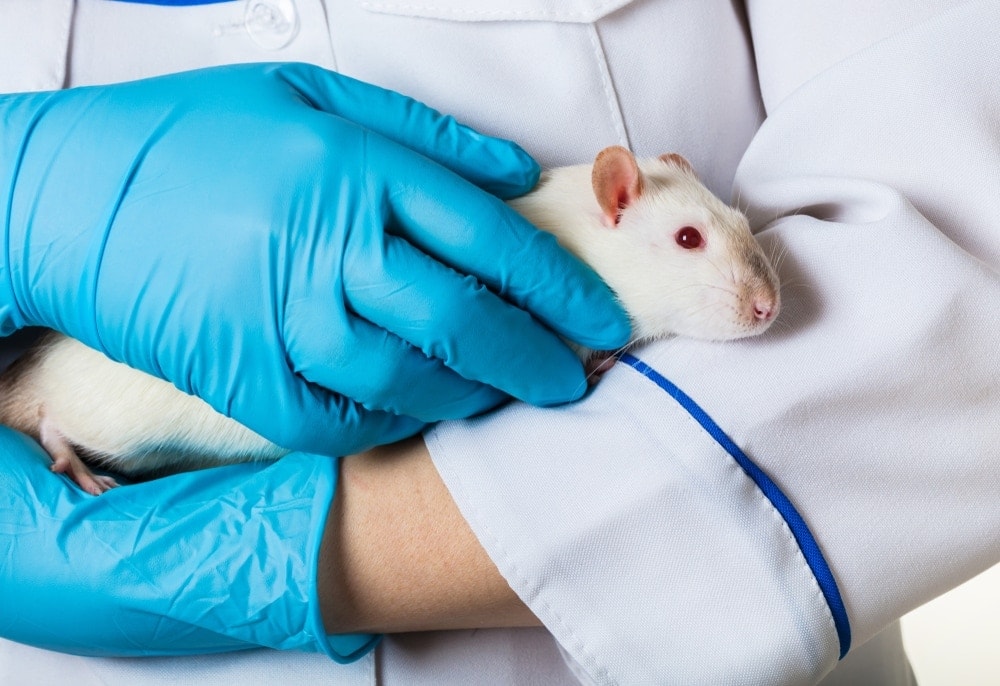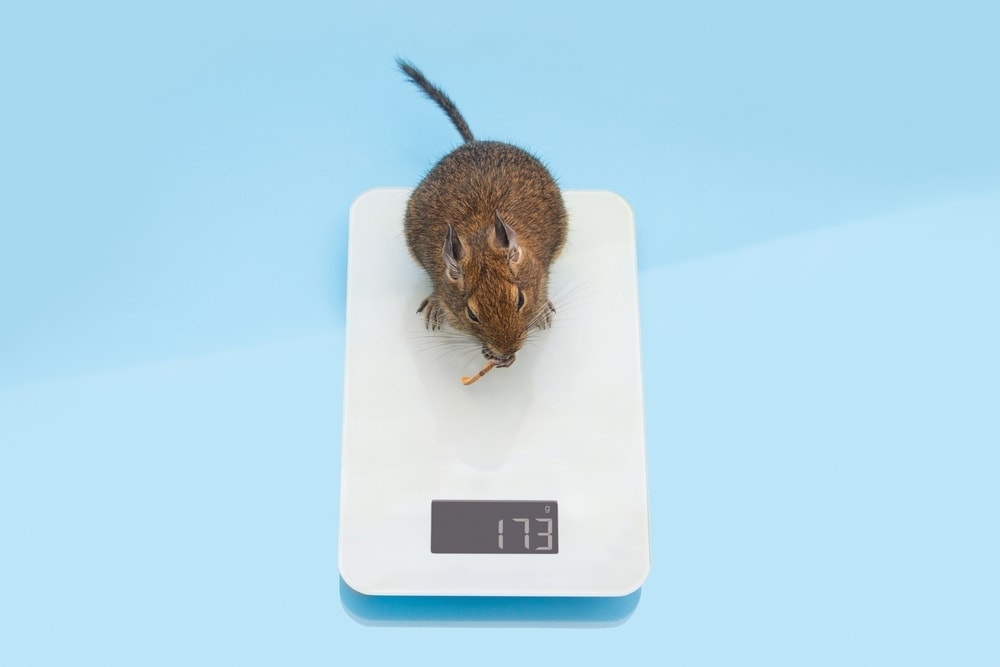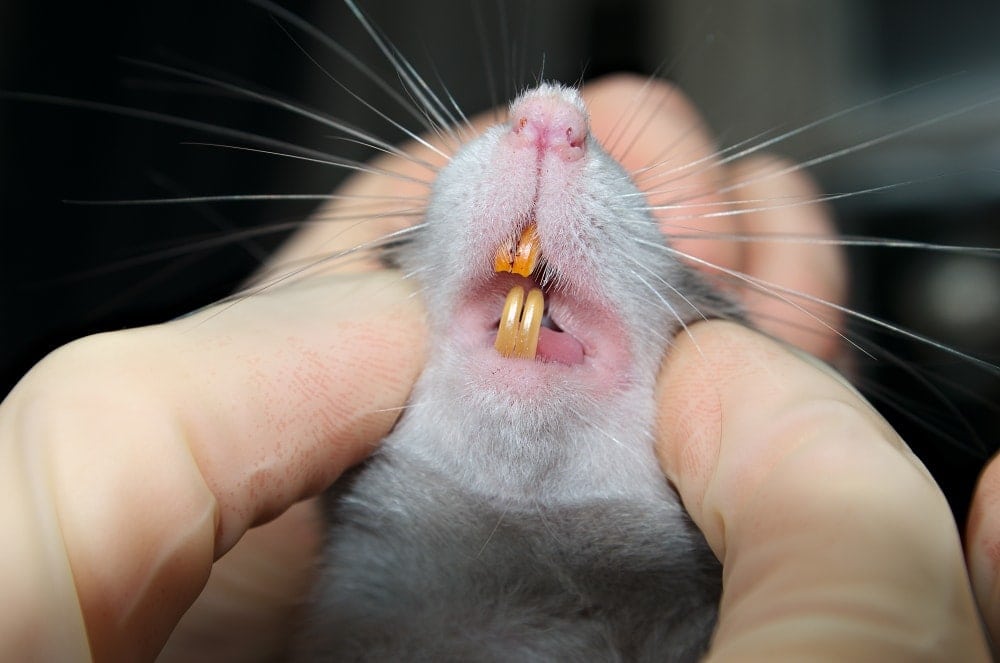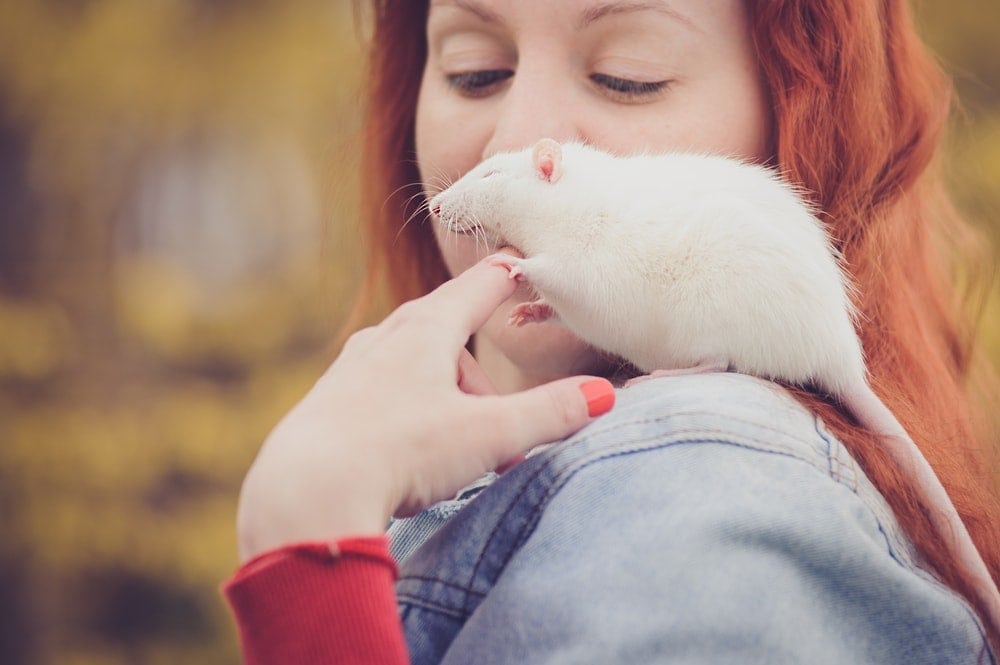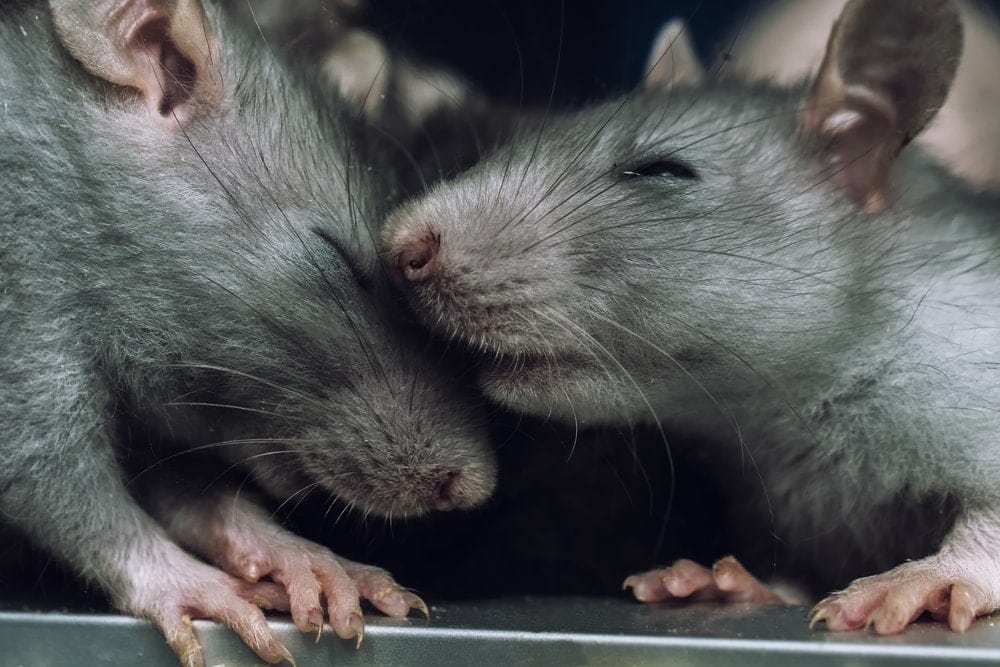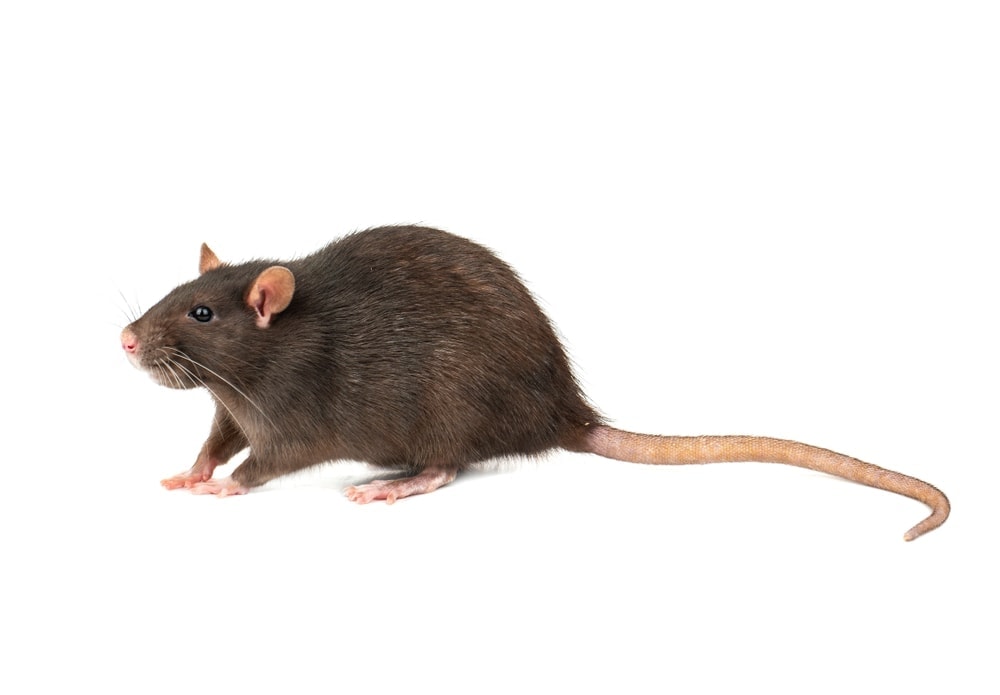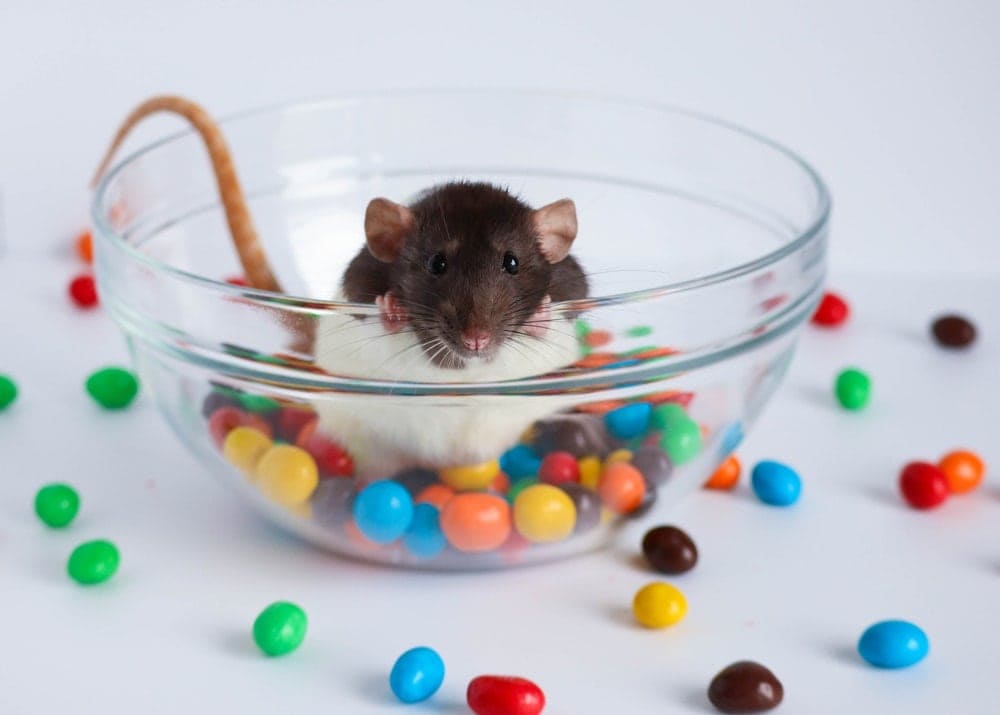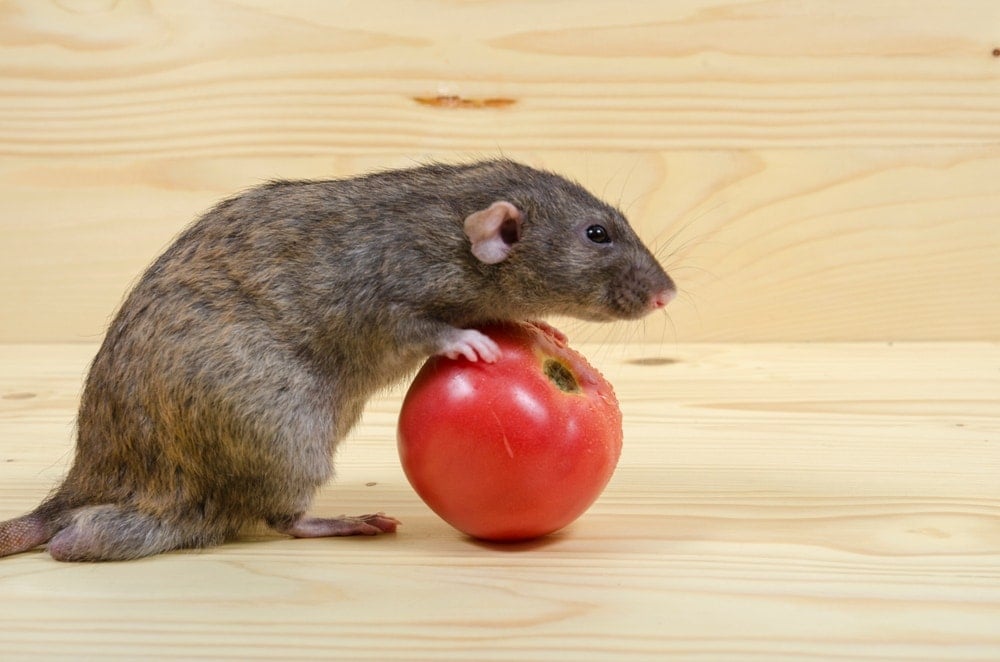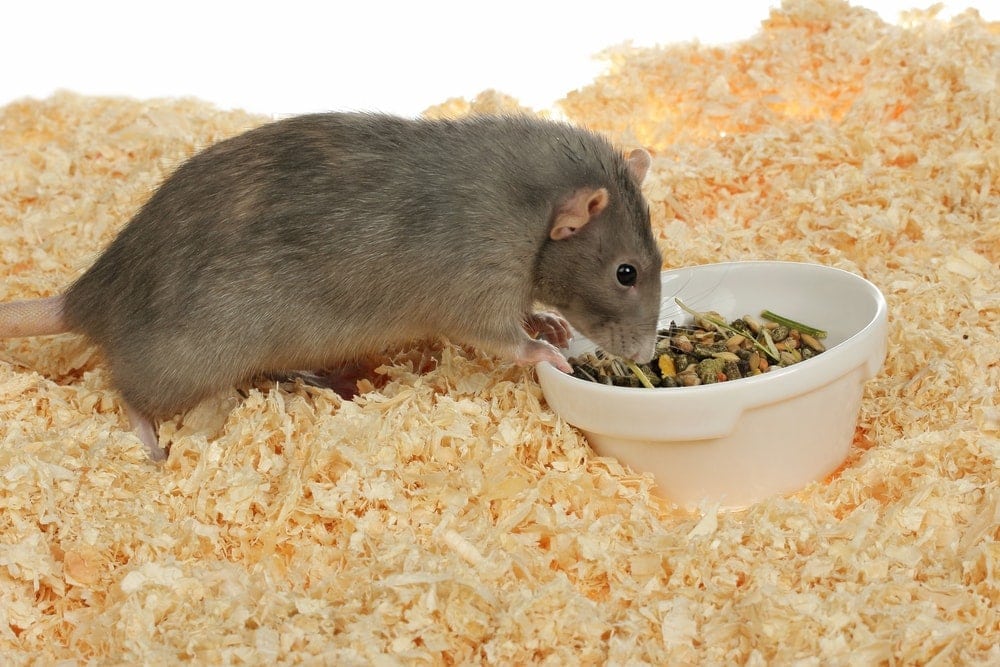It is perfectly normal for rats to sneeze, but it can be a sign of a serious underlying health issue.
It is important that you learn as much as possible about this particular behavior. Your pet’s sneezing could indicate that something is wrong with them.
Why is My Rat Sneezing?
There are numerous possible explanations for your rat’s sneezing that you should be aware of.
1. Environmental Irritant
Your rat could be sneezing because of something in its environment. For example, you might notice them sneezing when they lie down on a new type of bedding you have just put in their cage. Cedar and pine are both common types of bedding materials that can elicit this sort of response.
The problem could even be something that you are wearing. If your rat only seems to sneeze when you handle it, you might need to change your cologne or perfume. It could also be a reaction to the material of your clothes.
2. Excitement
It is also possible that your rat is sneezing because it is excited. This is actually not all that uncommon among rats, but it’s nothing to be concerned about. You might notice them sneezing when they see you after you’ve been gone for a while. This just means that you have a close bond with your pet, which is definitely a good thing.
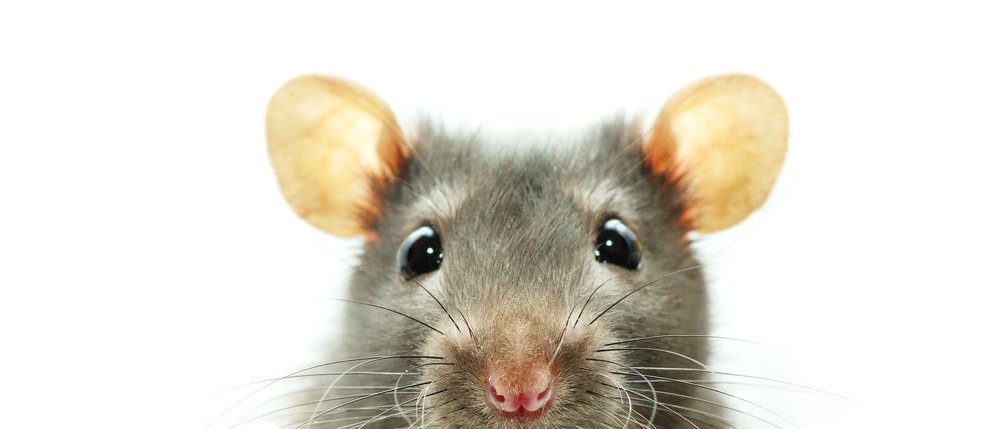
3. Respiratory Infection
If your pet rat has a respiratory infection, they could start sneezing frequently. These infections can be very serious and even life threatening. These animals can develop such an infection fairly easily, so it is important to be aware of this possible explanation.
Some of different types of bacteria that cause respiratory infections include:
- Streptococcus: This bacterium is fairly common and can be transferred to rats by humans. It causes fluid to build up in the lungs and even surround the heart muscle. It is also possible for strep to cause an infection of the middle ear.
- Klebsiella: If your rat is affected by this bacterium, they could develop abscesses on various organs. It is incredibly dangerous and often results in death.
- Corynebacterium: Results in abscesses on the rat’s lungs, making it very difficult for them to breathe.
- SADV: Sialdodacryoadentis is actually a type of coronavirus that can result in sneezing as well as conjunctivitis.
- Sendai virus: This is another potentially lethal virus that can have an incredibly negative impact on your rat’s lungs.
A few of the most common symptoms of a respiratory infection in rats include sneezing, labored breathing, conjunctivitis, lethargy, and lack of appetite. If you suspect that your rat has this type of infection, you’ll need to get them to a veterinarian quickly.
Respiratory infections in rats can usually be treated quite effectively with the proper medication. If they have a bacterial infection, antibiotics are typically prescribed. Your rat will have to be put on a course of antibiotics for a certain period of time. There is no single treatment that can get rid of a bacterial infection.
4. Stress
There are lots of different symptoms of stress that can present in rats, including sneezing. This could be a sign that your rat is experiencing a high level of stress. The cause of the stress could be anything from loud noises in their environment to being kept in a cage that is too small.
It is important that you get an adequate size cage for your pet rat, as this will help with keeping it healthy overall. You should keep their cage in an area of your home that isn’t particularly noisy.
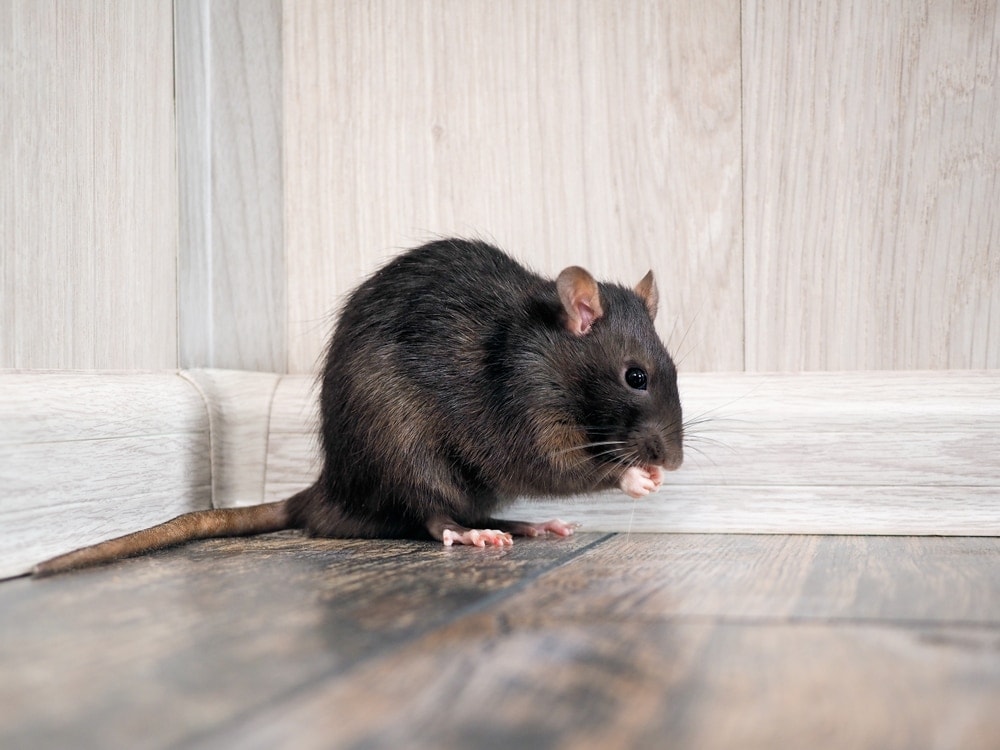
Treatments for Your Pet Rat’s Sneezing
It’s also important that you learn about some of the different treatments for pet rat’s constant sneezing.
1. Medication
If your rat’s sneezing problem is caused by an infection, it will need to be given medication on a daily basis until it has completely cleared up. This could be an antibiotic or some other type of medication, depending on the nature of the infection. Your veterinarian will know what to prescribe after performing a thorough examination of your pet.
2. Change the Bedding
It might be necessary to change out your rat’s bedding with a different material if they are having a negative reaction to it. Dried pine shavings make for excellent rat bedding, and they are non-irritating.
If it seems like your rat is avoiding its bedding, it is most likely because it is the cause of their continuous sneezing. Try using a different material and see if it makes a difference.
3. Keep Their Cage Clean
Cleaning your rat’s cage could actually be enough to make it stop sneezing. It’s possible that their sneezing is due to an accumulation of dust in their immediate environment.
It is recommended that you do a deep cleaning of your rat’s cage at least once every week. This will also help with reducing the chances of infection. Make sure that you clean the inside and outside of the cage thoroughly.
When to See a Veterinarian
It is important that you take your pet rat to the vet if your hamster’s frequent sneezing doesn’t stop within a couple of days. If you do everything you can but it doesn’t make any difference, don’t hesitate to get them checked out.
Conclusion
- While the occasional sneezing is normal for rats, constant sneezing is cause for concern.
- It is possible that your pet rat is sneezing so much because of some irritant in their environment, such as their bedding.
- Try changing out your rat’s bedding with a less irritating material.
- Sometimes a rat will begin sneezing if it is excited, frightened, or startled.
- If your rat only sneezes when you handle it, you might be using a cologne or perfume that is irritating your pet.
- Bacterial and viral infections can cause an infection, which results in your rat sneezing over and over.
- Antibiotics can usually clear up a rat’s bacterial infection pretty effectively.
- If you notice any signs of a respiratory infection with your rat, you’ll need to take it to the vet immediately.
- Make sure that you keep your pet rat’s cage clean to avoid respiratory irritation and infection.
